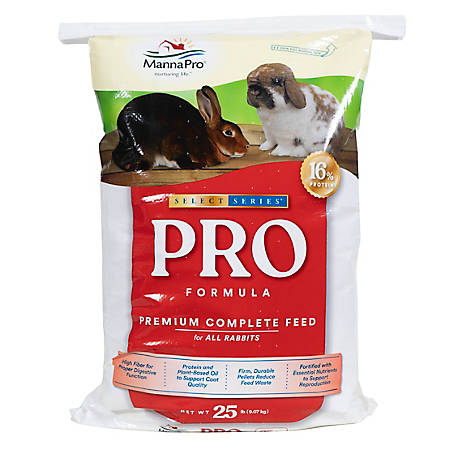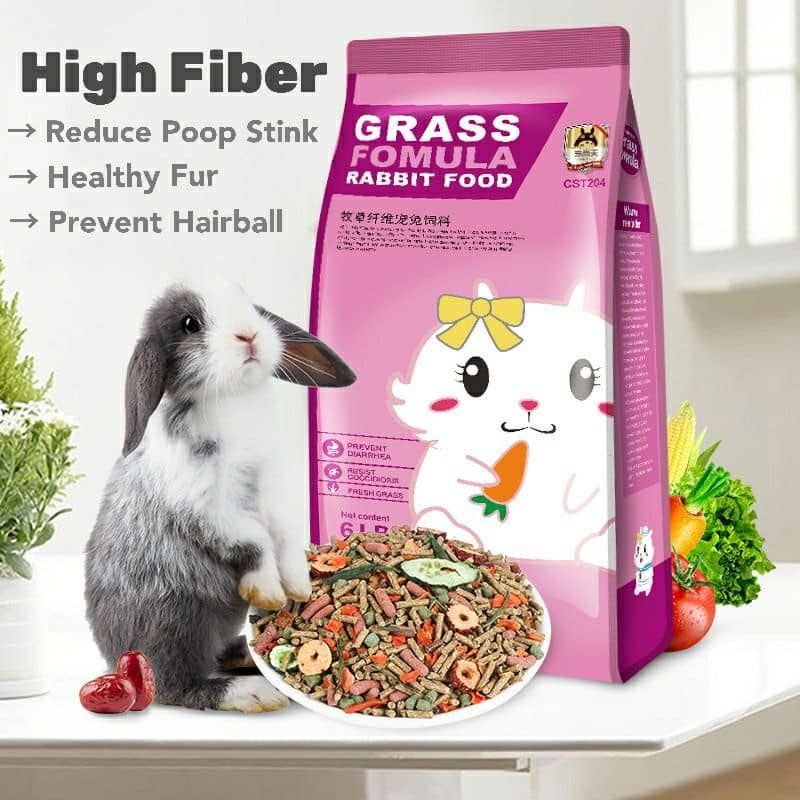The Ultimate Guide to Vet-Formulated Rabbit Food: Ensuring a Healthy & Happy Hopper
Introduction
Rabbits, with their endearing twitching noses and playful hops, have become cherished members of countless households. As responsible pet owners, we strive to provide them with the best possible care, and nutrition is paramount. While the market offers a plethora of rabbit food options, one stands out for its commitment to optimal health: vet-formulated rabbit food.
This comprehensive guide will delve into the world of vet-formulated rabbit food, exploring its benefits, ingredients, and how to choose the best option for your furry friend.
Why Vet-Formulated Rabbit Food Matters
Rabbit nutrition is a delicate balance. These herbivores have a unique digestive system that requires specific nutrients in the right proportions. Poor diet can lead to a host of health problems, including:
- Dental Issues: Rabbits’ teeth constantly grow, and a diet lacking in fiber can lead to malocclusion (misalignment of teeth), causing pain and difficulty eating.
- Gastrointestinal Stasis (GI Stasis): This potentially life-threatening condition occurs when the digestive system slows down or stops completely, often due to insufficient fiber intake.
- Obesity: Overfeeding sugary treats and pellets high in carbohydrates can lead to weight gain, putting stress on joints and organs.
- Bladder Sludge and Stones: Excess calcium in the diet can contribute to the formation of bladder sludge and stones, causing discomfort and urinary problems.
Vet-formulated rabbit food is designed to address these concerns by providing a balanced diet that supports optimal health and prevents common ailments.
Key Benefits of Vet-Formulated Rabbit Food
-
Optimal Nutrient Balance:
- Vet-formulated diets are carefully crafted to provide the ideal ratio of fiber, protein, and fat for rabbits.
- They contain essential vitamins and minerals, such as Vitamin A, Vitamin D, Vitamin E, and calcium, in appropriate amounts.
-
High Fiber Content:
- Fiber is the cornerstone of a healthy rabbit diet. Vet-formulated foods prioritize high-fiber ingredients, such as timothy hay and other grass hays.
- Adequate fiber promotes healthy digestion, prevents GI stasis, and helps wear down teeth naturally.
-
Controlled Calcium Levels:
- Excess calcium can lead to urinary problems. Vet-formulated diets typically contain moderate levels of calcium to support bone health without increasing the risk of bladder sludge or stones.
-
Reduced Sugar and Starch:
- Sugary treats and high-starch pellets can contribute to obesity and digestive upset. Vet-formulated foods minimize these ingredients, focusing on fiber-rich sources of energy.
-
Enhanced Palatability:
- Many vet-formulated diets are designed to be palatable to rabbits, encouraging them to eat a balanced diet.
-
Formulated by Experts:
- These diets are developed by veterinarians and nutritionists who specialize in rabbit health. They are based on scientific research and a deep understanding of rabbit physiology.
Understanding the Ingredients
A high-quality vet-formulated rabbit food will typically contain the following ingredients:
- Timothy Hay: The primary ingredient, providing essential fiber for digestion and dental health.
- Other Grass Hays: Orchard grass, meadow fescue, or oat hay can be included to add variety and nutritional benefits.
- Soybean Hulls: A good source of insoluble fiber.
- Soybean Meal: Provides a source of protein and essential amino acids.
- Wheat Middlings: A source of fiber and carbohydrates.
- Flaxseed: Rich in omega-3 fatty acids, which promote healthy skin and coat.
- Vitamin and Mineral Supplements: Provide essential nutrients that may be lacking in the base ingredients.
- Prebiotics: Support the growth of beneficial bacteria in the gut, promoting healthy digestion.
- Yucca Schidigera Extract: Helps reduce odor in rabbit urine.
Ingredients to Avoid
When choosing rabbit food, be sure to avoid products that contain:
- Artificial Colors and Flavors: These additives offer no nutritional value and may be harmful to rabbits.
- High Sugar Content: Avoid foods with added sugar, molasses, or corn syrup.
- Nuts and Seeds: These are high in fat and can lead to obesity.
- Dried Fruits: These are high in sugar and can contribute to digestive upset.
- Corn: Difficult to digest for rabbits and can lead to GI stasis.
- Peas and Beans: Can cause gas and bloating.
- Animal Products: Rabbits are herbivores and should not consume animal products.
How to Choose the Best Vet-Formulated Rabbit Food
-
Read the Label Carefully:
- Examine the ingredient list and nutritional analysis.
- Ensure that timothy hay or another grass hay is the primary ingredient.
- Check the fiber content (aim for at least 18%).
- Look for a balanced ratio of protein, fat, and carbohydrates.
-
Consult Your Veterinarian:
- Your veterinarian can provide personalized recommendations based on your rabbit’s age, health, and specific needs.
- They can help you choose a food that is appropriate for your rabbit’s life stage (e.g., young, adult, senior).
-
Consider Your Rabbit’s Preferences:
- Some rabbits may be picky eaters.
- Try offering a small amount of different vet-formulated foods to see which one your rabbit prefers.
-
Choose a Reputable Brand:
- Select a brand that is known for its commitment to quality and research.
- Look for brands that work closely with veterinarians and nutritionists.
-
Consider the Form of the Food:
- Vet-formulated rabbit food is typically available in pellet form.
- Choose a pellet size that is appropriate for your rabbit.
Feeding Guidelines
- Hay: Hay should make up the majority (80-90%) of your rabbit’s diet. Provide unlimited access to fresh timothy hay or other grass hay.
- Pellets: Offer a measured amount of vet-formulated pellets daily. The amount will vary depending on your rabbit’s size, age, and activity level. Consult your veterinarian for specific recommendations.
- Fresh Vegetables: Supplement the diet with a variety of fresh, leafy green vegetables, such as romaine lettuce, kale, and parsley. Avoid iceberg lettuce, which has little nutritional value.
- Water: Always provide fresh, clean water.
Transitioning to a New Food
When switching to a new rabbit food, it’s essential to do so gradually to avoid digestive upset. Here’s a suggested transition plan:
- Days 1-3: Mix 25% of the new food with 75% of the old food.
- Days 4-6: Mix 50% of the new food with 50% of the old food.
- Days 7-9: Mix 75% of the new food with 25% of the old food.
- Day 10: Feed 100% of the new food.
Conclusion
Vet-formulated rabbit food is a valuable tool for ensuring the health and well-being of your beloved bunny. By providing a balanced diet that is rich in fiber, low in sugar, and formulated by experts, you can help prevent common health problems and promote a long and happy life for your rabbit companion. Remember to consult with your veterinarian to choose the best food for your rabbit’s individual needs and always provide unlimited access to fresh hay. With proper nutrition and care, you can enjoy many years of companionship with your furry friend.


